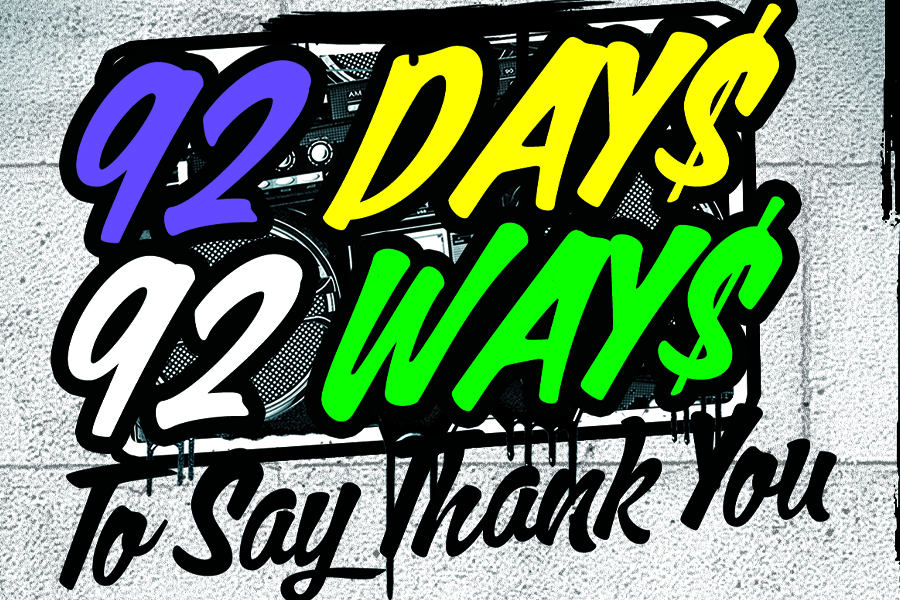Dedication of the long-awaited International African American Museum
CHARLESTON, S.C. (WCBD) – A highly anticipated museum that will tell the journey of enslaved Africans and their arrival and contributions to America will soon open in the heart of Charleston, South Carolina.
A dedication ceremony will celebrate the International African American Museum (IAAM) ahead of its grand opening to the public. The community is invited to watch a live simulcast of the ceremony at Marion Square on June 24 at 10:00 a.m.
National radio host and Lowcountry native Charlamagne Tha God will emcee the community gathering in Marion Square. It will feature remarks from Mayor John Tecklenburg and performances from local and regional talent.
There will be performances from a wide range of musicians and poets including BeBe Winans, Candice Glover, Markus Amaker, Patrice Covington, and Ranky Tanky.
Refreshments from Black-owned food trucks will also be on hand, along with a genealogy marketplace to honor the longstanding connection between Barbados and South Carolina.
The International African American Museum is constructed at Gadsden’s Wharf, the site where millions of men, women, and children landed after being chained and shackled following their capture in Africa and sent across the Atlantic Ocean and forced into labor.
“This is a place that will tell a story of trauma,” said Dr. Tonya Matthews, the museum’s chief executive officer. “This is also a place that will tell stories of joy.”
The idea for the museum took root when Charleston’s longest-serving mayor, Joseph P. Riley, Jr., read the book ‘Slaves in the Family’ by Edward Ball.
“It was 1998; I read the book ‘Slaves in the Family,’ and through the book then I learned for the first time the harshness and the challenges and the brutality … more enslaved human beings were brought here than any other site in North America,” said Riley. “I said we have the build a museum.”
For years Mayor Riley kept a note in the breast pocket of his suit jacket every day that read “Build the museum!”
After more than 23 years, the vision is coming into focus. Mayor Riley said of all the buildings, bridges, and ballparks built during his 40-year career serving the city, constructing a museum that would tell the story of the transatlantic slave trade was most important to him.
The central idea behind the museum which now stretches across 45,000 square feet is that this will be an evolving institution centered on truth.
“For some folks, it’s going to benefit being seen. This is my story in this amazing place- for others, it’s going to be I learned something new I did not know. For many others it’s simply going to be the beauty, the austerity, and the moments and the sensations in the space,” said Dr. Matthews.
Every part of the museum holds a deeper meaning, even down to the ground it’s built on. The IAAM is located at the former site of Gadsden’s Wharf, a transatlantic slave trading port where Dr. Matthews said 50% of enslaved people entered the United States.
“The museum has the humbling privilege and responsibility of reclaiming a portion of Gadsden‘s Wharf … Gadsden‘s Wharf is one of our nation’s most prolific transatlantic slave trading sites,” Dr. Matthews explained.
The history recounted inside dates back to 300 B.C.E., the earliest known record of human rice cultivation in Africa.
Exhibitions, galleries, and artifacts display the African journey from that point to the modern day. And visitors will be able to explore their own ancestry through the Center for Family History.
The museum broke ground in October 2019 and experienced some delays through the coronavirus pandemic in 2020. Its opening was postponed earlier this year due to challenges with the building’s humidity and temperature controls, something leaders said was crucial in the preservation of historic artifacts.
“I think in retrospect as I think about our delays, it’s extraordinary that we broke ground in late 2019, and then the world turned upside down for a good two years or so, and we find ourselves here in 2023,” said Dr. Matthews.
“Some of those delays were our commitment to getting this absolutely right and I hope that when folks walk into the museum they won’t say ‘Wow, I can’t believe it took so long.’ They will say ‘Oh my, how did they get it done so quickly,’” she added.
When visitors stand at the former Gadsden’s Wharf, they will not only see artifacts and exhibits, but they will also stand where pain and perseverance changed a nation.
The history of enslaved Africans will fill every space at the museum. It will tell stories of how Africans and African Americans used intelligence, ingenuity, and insight to shape every aspect of the world.
Guests will be invited to tour the museum beginning Tuesday, June 27. Purchase tickets by clicking here.




